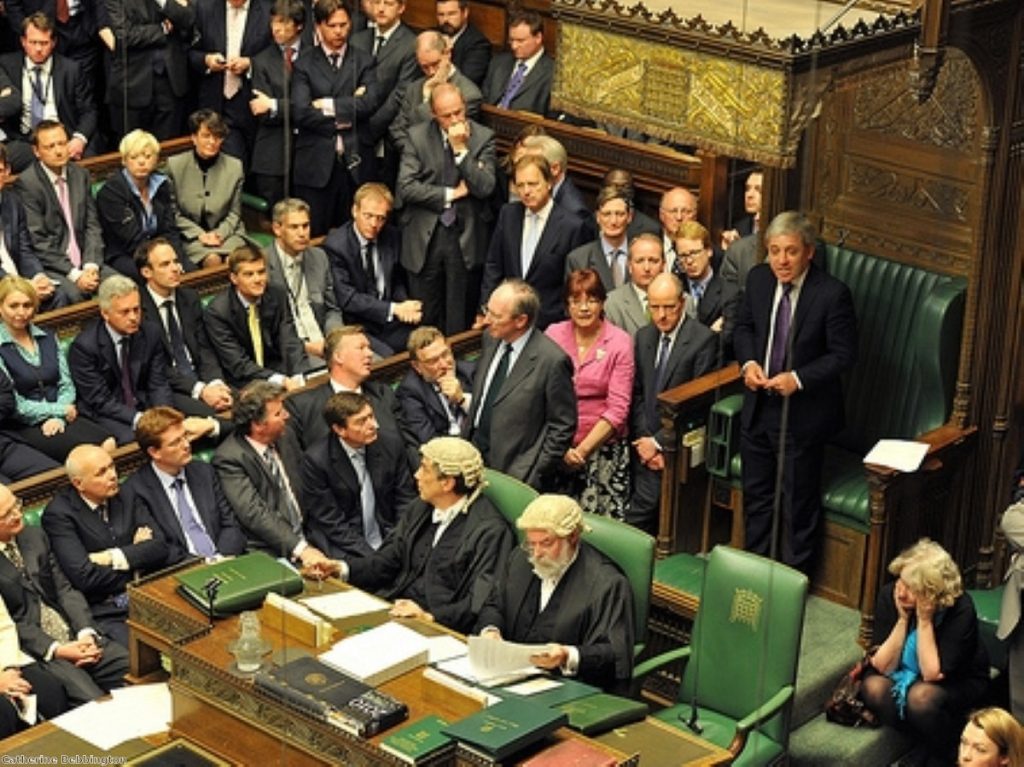‘A dark night for British justice’
Civil liberties campaigners branded it a "dark night for British justice" this evening, after MPs defeat attempts to water-down the secret courts bill.
An amendment demanding judges balance national security against open justice when deciding whether to close off trials to the public and the press was defeated by 226 to 297, while a second amendment was voted down by 225 to 298.
Several former Labour Home Office ministers voted with the government, including Jack Straw, Hazel Blears and Paul Goggins.
"This has been a dark night for British justice. These plans for secret courts were always dangerous and unnecessary, but the failure of even minor attempts to modify the bill means that it is even worse than when it first reached the House of Commons," said Clare Algar, executive director of human rights group Reprieve.


"MPs must now vote against the Bill altogether if they want to defend British justice. Should that fail, the House of Lords will be the only thing standing in the way of plans which would mean the end of the right to a fair trial in a vast range of civil cases."
Minister without portfolio Ken Clarke is traditionally on the side of civil liberties advocates, but this afternoon saw him face down outrage from former allies and fellow Tory MPs over the plans.
"I am left in wonder of admiration at the ingenuity [of the bill's opponents] at producing an endless list of amendments, so whenever an amendment is accepted they release more amendments. It is ingenious," Clarke told the Commons.
"I don't think the opposition wish to destroy the policy of the bill but actually they've tabled amendments which would have that effect.
"I invite the House to apply a modicum of common sense and national security as well. I must resist further pressure."
The bill, which would close off sensitive trials on national security matters to press and members of the public, was subject to a critical letter by 116 prominent Liberal Democrats encouraging the leadership to take a stand on the policy this morning.
Special advocates, the expert lawyers who work on national security cases, branded the proposals "inherently unfair and contrary to the common law tradition".
Clarke responded to that criticism, saying: "Special advocates do win cases. You'd think they were powerless. The judges accord to them more power of persuasion than they accord themselves."
Tory MP Richard Shepherd took the side of the lawyers, saying: "The special advocates don't like it and I don't like it and members of this House don't like it either."
Tory chairman of the Treasury committee Andrew Tyrie said: "It's not often I find myself agreeing with everything that's been said on the other side of the House but not this side.
"This may seem technical, but it's really about the kind of society we want. They're about what values we as a country are seeking to espouse and export."
Green party MP Caroline Lucas told Clarke: "Don't get carried away with the ideas everyone supports this. The Green party doesn't, the Liberal Democrat conference doesn't. Many people don't support this."
Clarke's civil liberties credentials have been severely damaged by the bill, but he has introduced a series of new clauses designed to calm Lib Dem jitters and respond to criticism from the Lords. Some of these moves were denounced by human rights groups as worsening the original problems.
The clauses provide five-year reviews of the legislation and annual reports on how closed proceedings are progressing.
"The judge now has total discretion over whether to order a CMP [closed material procedure] following an application either by the government, the claimant or from the court of its own motion," Clarke said.
In a letter to the Times, Lord Woolf also defended the legislation, saying it would allow the government and claimants the chance to "put their case".
Malcolm Rifkind, chair of the intelligence and security committee, celebrated the bill for allowing anyone fulfilling his role to get more information from the security services.
"Amid the frenzied debate not many people have noticed that the bill strips agency heads of their power to deny the ISC information," he said.
"They have missed the fact that we will now be able to send our own investigators into agencies to gather evidence we need for our reports."
A Cabinet Office spokesperson said: "The bill makes it clear the judge has complete discretion over whether or not to order a closed proceeding if he is satisfied it is in the interests of the fair and effective administration of justice."
But the bill continues to be a source of outrage and indignation for civil liberties advocates and human rights lawyers, who say it is an unnecessary intervention in Britain's constitutional arrangements.
Reprieve said the secret court proceeding would allow the government to cover up its embarrassment or wrongdoing in cases of abuse, such as torture or rendition.
"Government arguments for morphing British courts into shadowy Soviet-style commissions have completely collapsed," director of Liberty Shami Chakrabarti said.
"Secret justice is not justice and simply cannot be justified. The time for tinkering is long gone. MPs of all political stripes must stand up and fight for fair trials and the rule of law by defeating this odious bill."

